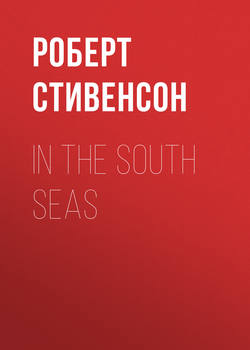Читать книгу In the South Seas - Роберт Стивенсон - Страница 10
PART 1: THE MARQUESAS
CHAPTER X – A PORTRAIT AND A STORY
ОглавлениеI have had occasion several times to name the late bishop, Father Dordillon, ‘Monseigneur,’ as he is still almost universally called, Vicar-Apostolic of the Marquesas and Bishop of Cambysopolis in partibus. Everywhere in the islands, among all classes and races, this fine, old, kindly, cheerful fellow is remembered with affection and respect. His influence with the natives was paramount. They reckoned him the highest of men – higher than an admiral; brought him their money to keep; took his advice upon their purchases; nor would they plant trees upon their own land till they had the approval of the father of the islands. During the time of the French exodus he singly represented Europe, living in the Residency, and ruling by the hand of Temoana. The first roads were made under his auspices and by his persuasion. The old road between Hatiheu and Anaho was got under way from either side on the ground that it would be pleasant for an evening promenade, and brought to completion by working on the rivalry of the two villages. The priest would boast in Hatiheu of the progress made in Anaho, and he would tell the folk of Anaho, ‘If you don’t take care, your neighbours will be over the hill before you are at the top.’ It could not be so done to-day; it could then; death, opium, and depopulation had not gone so far; and the people of Hatiheu, I was told, still vied with each other in fine attire, and used to go out by families, in the cool of the evening, boat-sailing and racing in the bay. There seems some truth at least in the common view, that this joint reign of Temoana and the bishop was the last and brief golden age of the Marquesas. But the civil power returned, the mission was packed out of the Residency at twenty-four hours’ notice, new methods supervened, and the golden age (whatever it quite was) came to an end. It is the strongest proof of Father Dordillon’s prestige that it survived, seemingly without loss, this hasty deposition.
His method with the natives was extremely mild. Among these barbarous children he still played the part of the smiling father; and he was careful to observe, in all indifferent matters, the Marquesan etiquette. Thus, in the singular system of artificial kinship, the bishop had been adopted by Vaekehu as a grandson; Miss Fisher, of Hatiheu, as a daughter. From that day, Monseigneur never addressed the young lady except as his mother, and closed his letters with the formalities of a dutiful son. With Europeans he could be strict, even to the extent of harshness. He made no distinction against heretics, with whom he was on friendly terms; but the rules of his own Church he would see observed; and once at least he had a white man clapped in jail for the desecration of a saint’s day. But even this rigour, so intolerable to laymen, so irritating to Protestants, could not shake his popularity. We shall best conceive him by examples nearer home; we may all have known some divine of the old school in Scotland, a literal Sabbatarian, a stickler for the letter of the law, who was yet in private modest, innocent, genial and mirthful. Much such a man, it seems, was Father Dordillon. And his popularity bore a test yet stronger. He had the name, and probably deserved it, of a shrewd man in business and one that made the mission pay. Nothing so much stirs up resentment as the inmixture in commerce of religious bodies; but even rival traders spoke well of Monseigneur.
